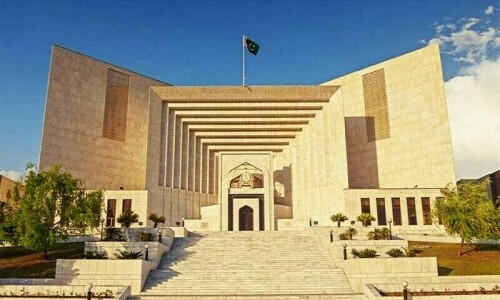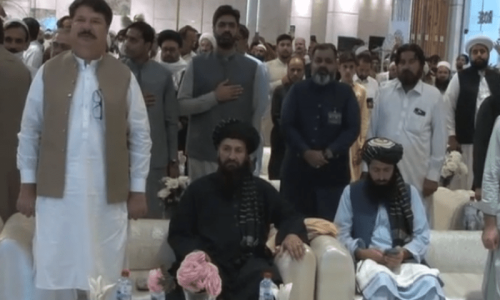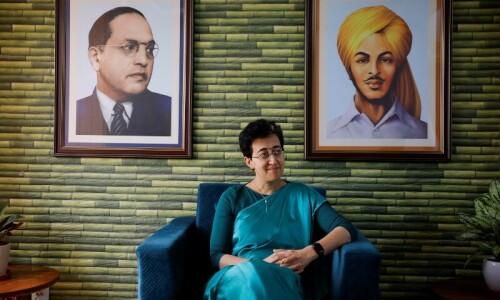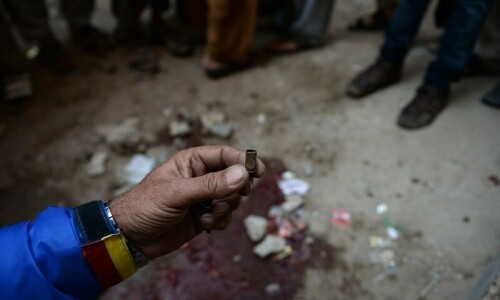WASHINGTON, Jan 8: The United States has welcomed Gen Pervez Musharraf’s statement made on Monday signifying Pakistan’s rejection of “terrorism in all its forms and manifestation”, but there are few other signs of any reduction in US pressure on the Musharraf regime to take stronger steps against extremist or militant organizations suspected of being involved in violent activity in Kashmir or against India.
Gen Musharraf’s statement came at a joint news conference addressed by him with British Prime Minister Tony Blair in Islamabad, and, while welcoming it, a senior State Department official said on Tuesday the US expected Pakistan to continue to move against “terrorist organizations” that pose a danger to Pakistan and its neighbours.
On Monday afternoon, President George Bush, replying to reporters’ questions on the tense situation between Pakistan and India, had said it was “very important for President Musharraf to make a clear statement to the world that he intends to crack down on terror. And I believe if he does that and continues to do what he’s doing, it will provide the — it will provide relief, pressure relief, on a situation that’s still serious”.
Though Mr Bush has earlier on a number of occasions praised Gen Musharraf’s support for the campaign against terrorism, his remarks on Monday will probably be interpreted as not showing enough understanding of the Pakistani leader’s predicament in moving too fast against militants with links to the Kashmir struggle. US officials and analysts insist that there is realization in Washington of the serious problems faced by Gen Musharraf, but at the same time there always appears to an expectation that more should be done. On occasions, there is an impression almost as if Washington is merely echoing New Delhi’s current line.
Ambassador Teresita Schaffer, who heads the South Asia programme at the Centre for Strategic and International Studies, says Sept 11 had put Gen Musharraf at a “fork in the road” and in a position that he must have most wanted to avoid —— tackling the “firewall” built between terrorism generally and developments in Kashmir.
She suggested that this might no longer be possible, but underlined the need for India to be more sensitive to Gen Musharraf’s predicament. The US, Ambassador Schaffer said, would wait for the measures that Gen Musharraf would take against extremism in the longer term.














































Dear visitor, the comments section is undergoing an overhaul and will return soon.